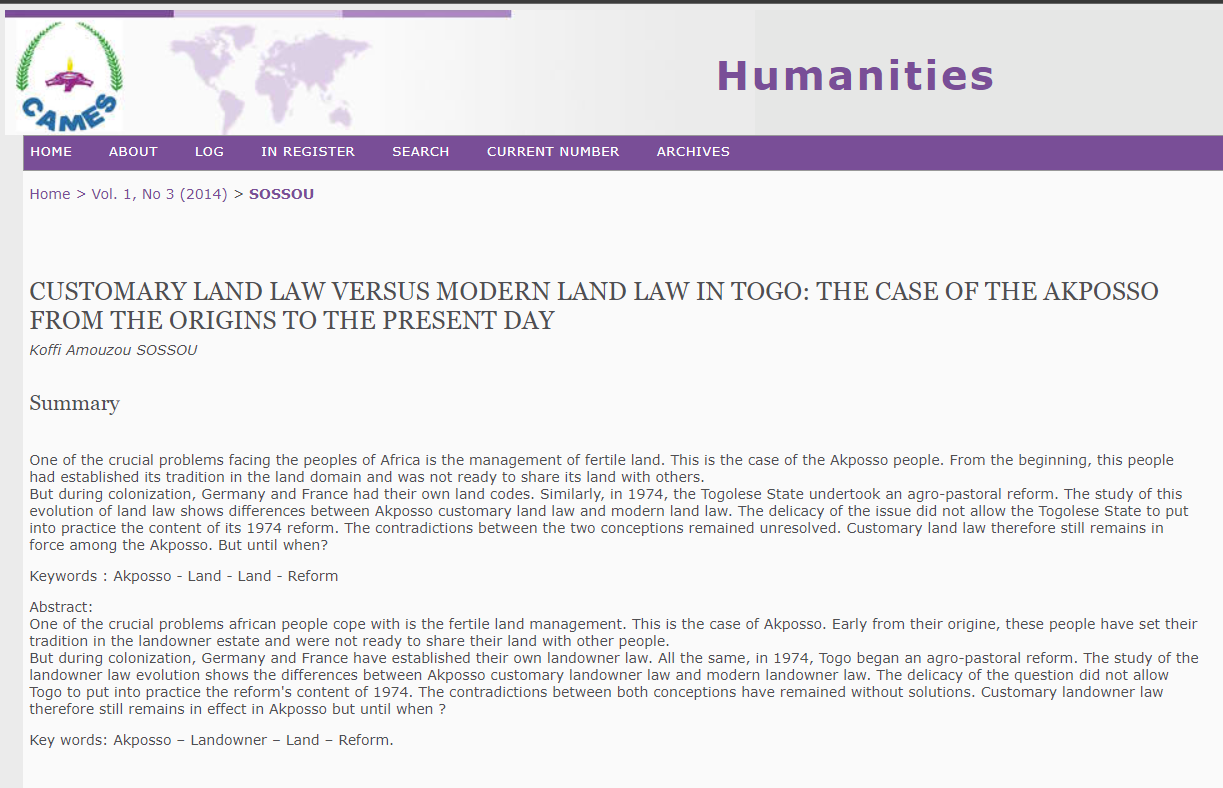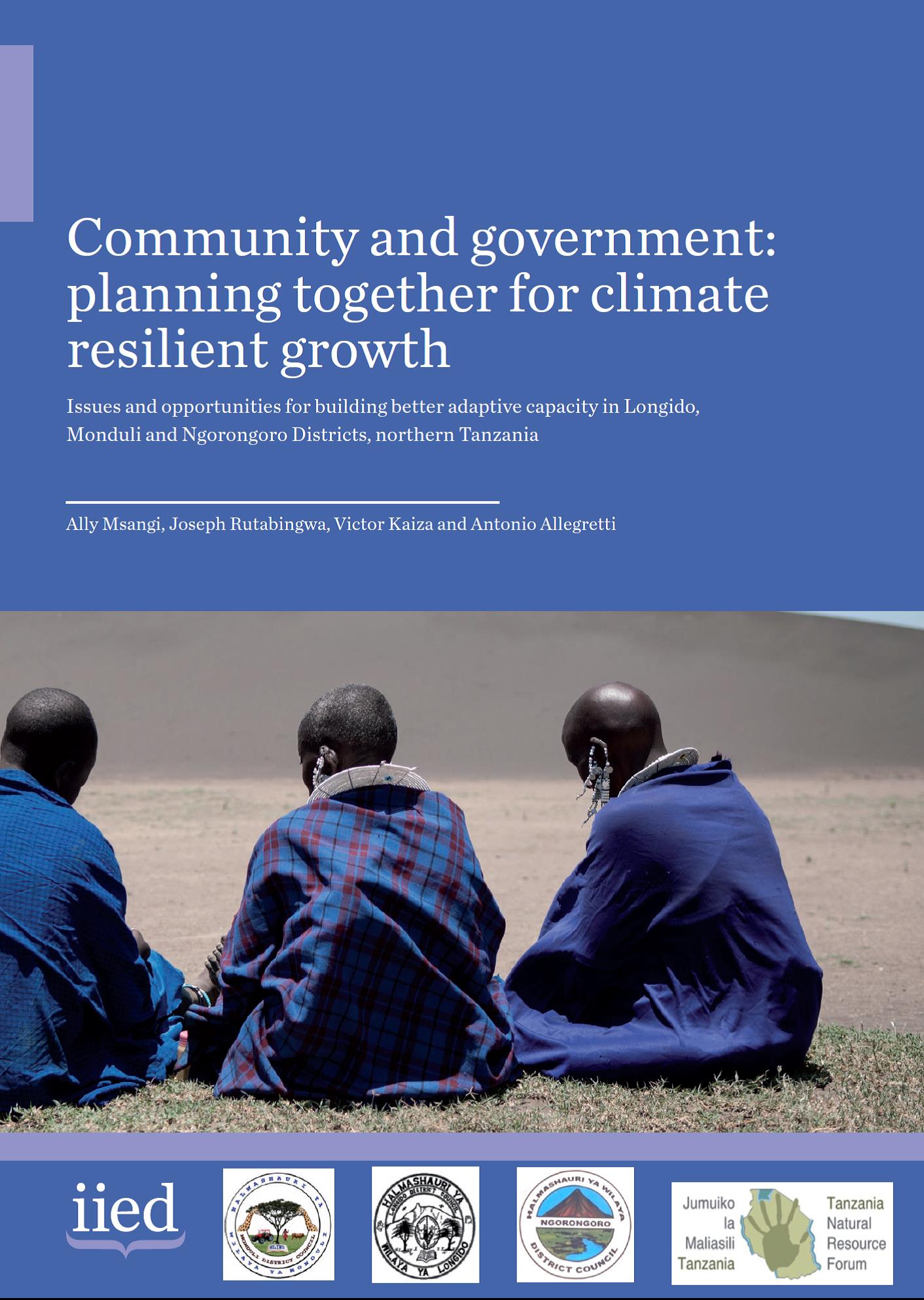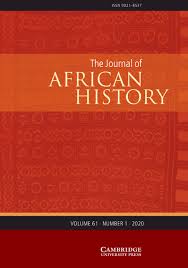Le droit foncier coutumier face au droit foncier moderne au Togo
L’un des problèmes cruciaux auxquels font face les peuples africains est celui de la gestion des terres fertiles. C’est le cas du peuple akposso. Dès les origines, ce peuple avait établi sa tradition dans le domaine foncier et n’était pas prêt à partager ses terres avec autrui. Mais pendant la colonisation, l’Allemagne et la France ont eu leurs propres codes fonciers. De même, en 1974, l’Etat togolais a entrepris une réforme agro pastorale. L’étude de cette évolution du droit foncier montre des différences entre le droit foncier coutumier akposso et le droit foncier moderne.





